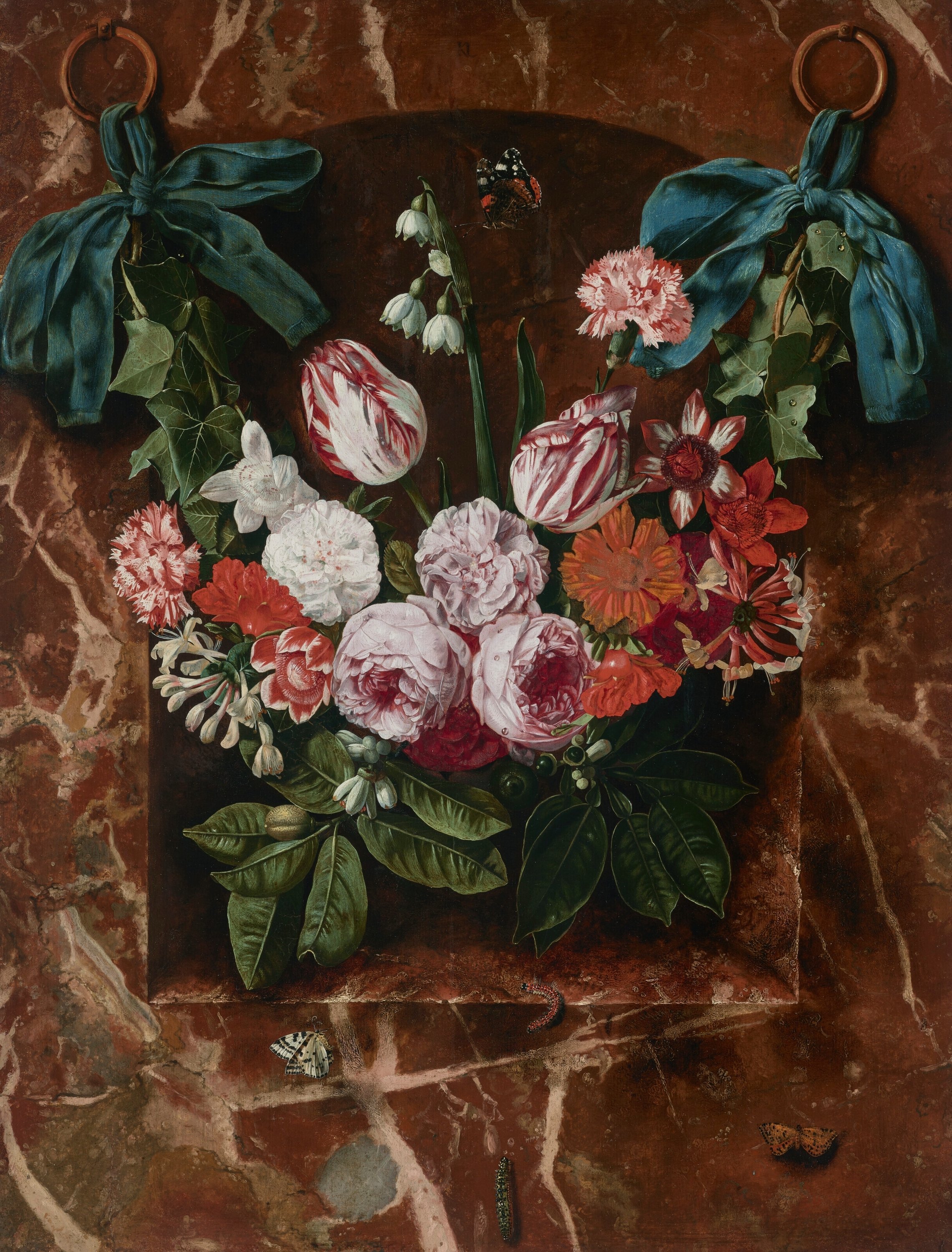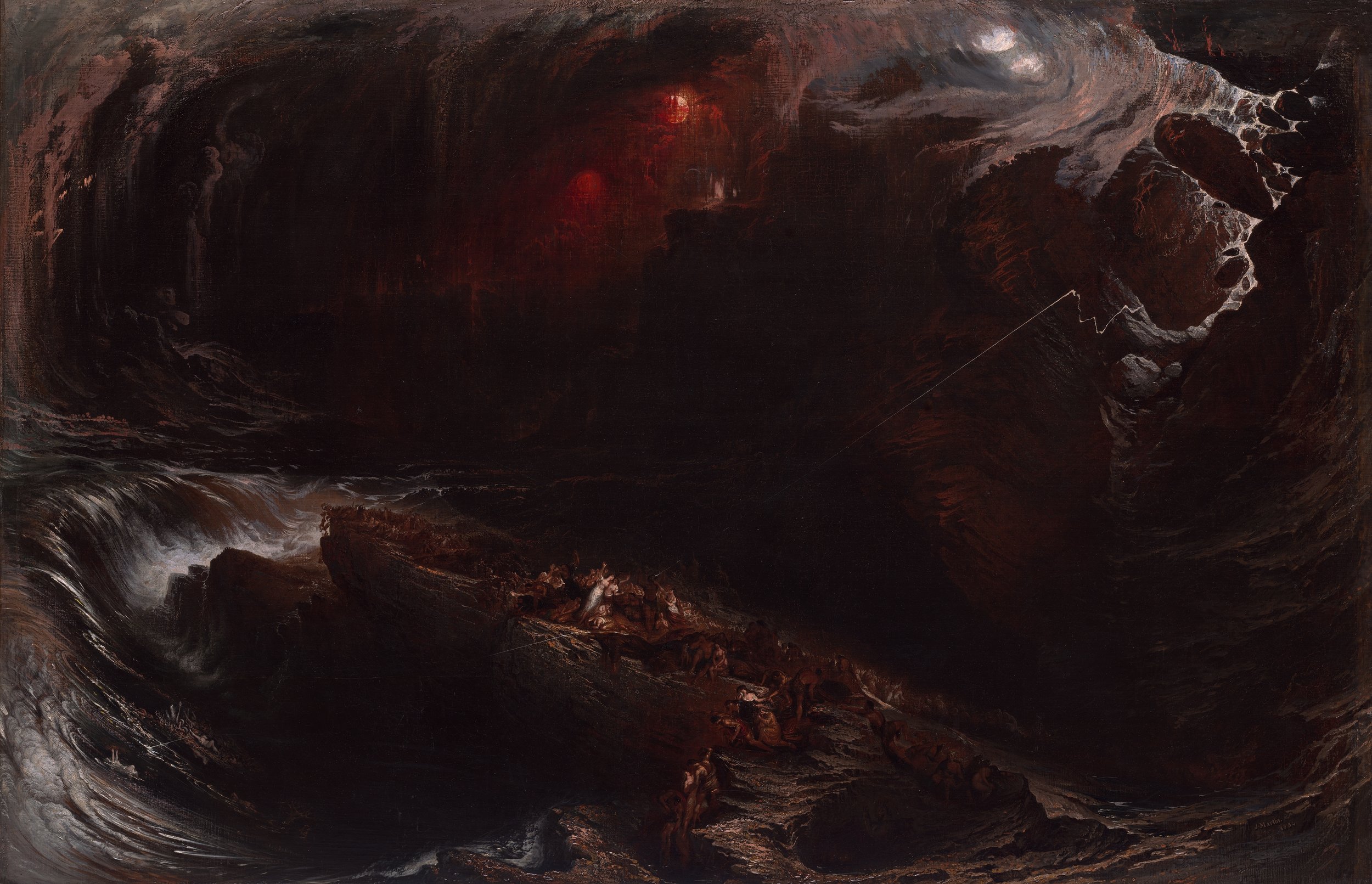Resurrection of a Mother Tongue

Resurrection of a Mother Tongue
Sara Kyoungah White
On a Long-Lost Language that Haunts the Human Story
The creator of the first American dictionary believed there was an original language of humankind. Noah Webster called it Chaldee, and he believed it was the common language spoken before the Tower of Babel threw the world into confusion. For hours on end, the haughty Monarch—as he was called by his contemporaries—would sit at a desk with dictionaries piled around him, tracing words from languages as varied as Finnish, Arabic, and Sanskrit back to their supposed pre-Babelic roots. The obsession somewhat stained his otherwise important contributions to lexicography.
It’s Webster who comes to mind while I’m sitting in a sea of fellow editors at a conference, listening to his modern-day heir, Peter Sokolowski. “I think of words as translations before they are definitions,” says Sokolowski, Merriam-Webster’s editor at large, rattling off a rapid succession of words in French and Latin to showcase their evolution into English.
Even if Chaldee is a myth, there is still the mystery of how one language seeps into and becomes another, how words are not only trees with branches but deep subterranean roots. The English dictionary helps us understand English words, but the words themselves are descended from waves of historical translations and mistranslations requiring explanations. Anglo-Saxon, French, Latin, Old Norse, Greek, and numerous others were welded and fused and manipulated to make English, now the most-spoken language in the world.
If galaxies are formed from the dust of exploded stars, how many expired languages has it taken to form English? Would Webster have seen this latest lingua franca as one more attempt to return to a time before Babel, when the night sky glimmered in slightly different places?
What are syllabic breakdowns and pronunciation keys, after all, except a desire to define, standardize, and unify? Against the curse of chaos and misunderstanding, miscommunication and muteness, we sit by candlelight, bent over desks to compile our dictionaries, assuaging the inward ache of a lost Chaldee.
“Translation,” wrote the missiologist Andrew Walls, “is the art of the impossible.”
*
On the morning I began preschool at the Jewish Community Center in Cleveland, I experienced something of a dimensional warp. Until then, I had been cloistered away in an apartment padded by the remnants of my parents’ home country: Korean words, Korean food, Korean ways of doing things. To suddenly enter a world where nothing was familiar—not sound, nor sight, nor smell—was so shocking that my mother, who could hardly speak English herself, had to sit outside the classroom the entire year lest I cry inconsolably, which I still did many days.
From the start, American English for me was fused with the sounds and tastes of Jewishness. The letters of the English alphabet were blended with words like shalom and tinged with the salty taste of snack-time matzo; songs like “Wheels on the Bus” merged seamlessly with “Dreidel, Dreidel.” It seemed natural to see dads with yarmulkes standing in the pickup line, and for the class bulletin board to be lined with die-cut menorahs. On Halloween, I dressed up as Queen Esther for both the preschool’s Purim parade and our Korean church’s fall festival.
Over time, bolstered by the glimpse of my mother’s elbow on the other side of the glass, I began to speak. I learned to sharpen my Ss and Rs, excavate vowels, and conjure novel sounds like th and ph. The three syllables of beuh-rae-deuh were compressed into the monosyllabic bread, and sentence structures were upended from object-verb to verb-object.
But as my English expanded and flourished, it began to drown out my Korean. Each evening, I sat at the same table of bap and banchan, metal chopsticks in hand, exchanging the same dialogues with my parents I had as a preschooler. Meanwhile, the makings of the adult world—history, politics, science, economics, psychology, literature; gossip, slang, idiom, jokes— were things I could increasingly engage with only in English.
When we moved school districts in seventh grade, I changed my name from Kyoung Ah to Sara, a final act to lock Korean out of my public mode—to keep it, privately, as the language of my childhood and my family home.
Now, as an adult, I find myself wandering in a desert somewhere between Babel and Pentecost. Korean-English dictionary in hand, I puzzle together the missing limbs of a language that feels as close to me as my mother. Beneath my every English word, there is a haunting of my first language: a stilted child still confined to that one-bedroom apartment in Ohio.
*
I’ve come to realize that to strangle a first language, and to attempt for the rest of your life to toggle back and forth between two tongues, is exhausting and namelessly frustrating because that is the very nature of translation.
Biblical scholars know this well. Translation “does unimaginable violence to the text,” says Robert P. Carroll, a violence as sudden and final as the events at Babel. “It wrenches the text from its home in the ancient cultures and languages, deports that text and exiles it in foreign languages and cultures.” As the people, so their language: with the curse of Babel, “the Lord scattered them from there over all the earth” (Gen. 11:8).
The earliest translators of the Scriptures knew the curse of Babel too. They were familiar with the daunting task of casting the Holy Words of God in the mold of another language. Saint Jerome, who helped translate the Bible into Latin in the fourth century, wrote in a letter:
Each particular word conveys a meaning of its own, and possibly I have no equivalent by which to render it, and if I make a circuit to reach my goal, I have to go many miles to cover a short distance. To these difficulties must be added the windings of hyperbata, differences in the use of cases, divergencies of metaphor; and last of all the peculiar and if I may so call it, inbred character of the language.
Ruakh—breath, wind, spirit—is exiled as simply “spirit,” and through the telephone game of translation, we get “ghost,” a concept completely alien to the original culture. A wordplay between qayits (“summer fruit”) and qets (“end”) must be laboriously explained. How can words like temple, blood, glory, and king make the jump across chasms in language, time, and space to even remotely communicate what they meant to their first speakers? Our papery lexicons scorch to ashes in the fiery brightness of the pronouncement of God.
In our shifting between lingual spaces, we are shaping bricks in the heart of Babylon and squinting at the sky. We are like blind amnesiacs groping for a memory wiped clean. We are like exiles who have been too long f rom home—like an immigrant child snipping away more and more pieces of her first language until only ghosts remain.
*
In the spring of 2024, I began studying biblical Hebrew, learning the evocative “alephbet,” God’s elbow on the other side of the glass. It was the first ancient language I had ever learned—unfamiliar letters, painful verb constructions, vocabulary that washed through me like water. But when I traced the khet, tet, and yod on my Hebrew app, I realized there was something holy about writing on this tablet of glass the same letters that God himself etched on tablets of stone.
The Jewish author Aviya Kushner describes her family’s heated discussions about Genesis 1:1 and the Hebrew language at the dinner table. “For as long as I can remember,” Kushner recounts, “my mother has been trying to convince us that grammar is a universe, and that the tiniest parts of grammar tell a story.” Because ancient Hebrew has no written vowels, the same trilateral word can be read to mean different things. The whole verb changes with the addition of tiny dots and dashes. So much of our views of the world and of God come down, in the end, to the presence or absence of minuscule ink blots.
The complexities of translating Hebrew reminds me of what the theologian Walls says: that the Incarnation was the ultimate act of translation. I imagine the waw and the zayin, the mem and the nun, the sacred prophecies and psalms and laws and records bubbling off the page and thickening with sinew, joining together to form hairs and irises, intestines and aorta, swaths of skin—birthed into the world with a loud cry that rends the universe.
What’s more, says Walls, Jesus was translated not into abstract language but into “a person in a particular locality and in a particular ethnic group, at a particular place and time.” Jesus spoke and taught in Aramaic, a dialect of Hebrew. He wore sandals and touched lepers, making new what was ruined just by saying the word, because he was the Word.
At Pentecost , that Word multiplied impossibly: a violent wind and tongues of fire, transforming the Babelic pronouncement. Not a complete undoing back to Webster’s Chaldee, but a glorious redeeming of every tongue.
The crowds, once dispersed in confusion, gathered in bewilderment, “because each one heard their own language being spoken” (Acts 2:6). Parthians, Mesopotamians, Asians, Egyptians, Romans, and Arabs heard “the wonders of God” in their own heart languages.
“Amazed and perplexed, they asked one another, ‘What does this mean?’” (v. 12). What does this mean?
*
The first time I read Psalm 23 in Korean, I wept. The Korean translation I read used the word heem for “strength,” a fragrant word recalling encouragement (Heem neh) and compassion (Wae iruhkae heemiupni?). Words woven through tens of thousands of unremarkable moments in my life—shouted playfully while getting out of the car, whispered through a closed bedroom door, stated plainly over a bowl of Spam and rice.
When I came to the part about the Lord preparing the table, it was as if I were sitting in my childhood bedroom again, listening to the clinking and hissing sounds of my mother getting dinner ready. The whole house filling with the aroma.
Some barren places, I learned, are receptive only to the gentle rain of a first language. In Acts 21:40, chapters after Pentecost, the apostle Paul calms a hysterical crowd in just this way by speaking to them in their native tongue, and his: Aramaic. It was the language that supplanted Hebrew beginning in the eighth century BCE when the Jews were scattered across the Assyrian Empire. Then, in Paul’s time of Roman occupation, Aramaic had become the language of home, shot through with longing and the remembrance of a troubled past.
I am comforted like that Pauline crowd each time I catch a snatch of conversation between passing strangers in Korean, each time I hear my mother’s voice on the other end of the phone. Sister, mother, child—these are what my first language calls me.
But it’s Jesus’ name, the way I first learned it—Yesunim—that stirs me most. Yesunim, I whisper, and the warmth of wind and fire accompanies the prayer; the sound of dry bones stirring, of mud bricks alchemizing into celestial stone.
Translation, I know now, is not impossible for him.
*
One night, while asleep in my college dormitory, I woke to my childhood name being called outside the window. By then, I had spent years going by the name Sara. But it was unmistakable: Kyoung Ah yah! Kyoung Ah yah! Just like how my mother would wake me on school mornings.
Out the window, a huddle of Korean girls looked up from the stone courtyard of Balch Hall, not at me but at the window just above, from which I could hear another Kyoung Ah laughing back at her friends. “Kyoung Ah is like Katie,” my mother had told me a long time ago. “It’s a very popular name for girls your age in Korea.” But having grown up in exile in Midwest America, often the only Korean in the school, I had not encountered another one until that night.
Afterward, I would sometimes wonder what the Kyoung Ah in the room above me was doing. Was she studying at her desk like I was, two Kyoung Ahs stacked neatly? When I called my mother in New Jersey, I wondered what my Kyoung Ah twin would say to her mother in Korea. In the daytime, were we two Kyoung Ahs living parallel lives, and at night, were we two Kyoung Ahs heading off to dream in two different languages?
But it is not that simple; sometimes I dream in Korean too. And when I hear my own voice, I spot it: a slick of Korean rounding out my vowels. A ribbon of light tied like a promise around my displaced words.
Mother tongue; heart language: ontological words that evoke our first encounters with the world—intimate like lullabies in the dark from a time before we spoke, mysterious like the soundscape of the womb in which we were knit, trembling with the glory of what was supposed to be, what is, and what is yet to come. In its visceral pronouncements, I am unmade and remade. The curse of Babel is undone.
When I hear my name called, Kyoung Ah yah, my head turns reflexively at the sound. I am like one who has heard the voice of Jesus through the haze of sleep, his words recalling a language before my own. His voice echoes in the stone courtyard at night; summons the preschooler crying and unable to speak. To the young child still sitting in the one-bedroom apartment, he says, tenderly,
Talitha, cumi.
Little girl, arise.
Ahgaya, irunah.
His words to me, like himself, are three in one.
Sara Kyoungah White
Writer & Editor
Sara is an essayist & print features editor for Christianity Today.
Painting by Carstian Luyckx




